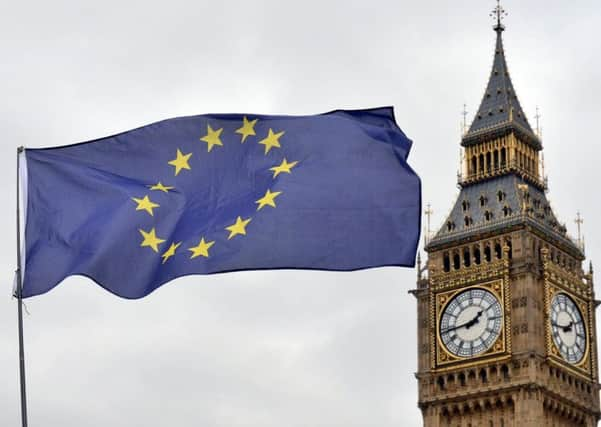David Behrens: Westminster's big secret '“ no one knows what they're doing


But while that is bad news for the parties, it is not the disaster for the country that many have inferred. A lucky escape, yes; a disaster, no.
Without safety in numbers, politicians on all sides must start to do what comes least naturally to them and attempt to govern by consensus.
Advertisement
Hide AdAdvertisement
Hide AdThis might even stretch to a Brexit negotiation in which more than one party is involved and which works to the benefit of more than one sector of society.
It’s impossible, and futile, to try to predict what will happen next because the truth is that everyone in Westminster is now making it up as they go along.
Nevertheless, playground lore should by now have established a few likelihoods. Among them: if another election is held this autumn, Labour, buoyed by its new-found popularity among idealistic young voters oblivious to economic reality, will emerge as the largest party. Even without an overall majority, that would see Jeremy Corbyn in Downing Street.
Ironically, the most likely victims of such an election are the Conservative backbenchers in newly marginal constituencies who could be the cause of it, should they rebel against a leader who threw away what may turn out to have been the last majority government for a generation.
Advertisement
Hide AdAdvertisement
Hide AdYou may think that a cross-party Brexit deal would be the worst of all worlds because, with the inevitable battles that would ensue, Britain’s position would be weaker than it has ever been. You may be right. But we are in unknown waters.
We are fond, all of us, in clinging to a belief that everything will work out in the end because people in power know what they are doing and will, when push comes to shove, get their act together. Unfortunately, that is simply not the case. They don’t know what they’re doing at all. They know only slightly more than the rest of us, which is not nearly enough.
I have never been an MP, nor have I sought to be. But I have served on a Cabinet Office committee and seen at close enough quarters how Westminster is supposed to work and how it actually works. Its workings on Brexit will be no different: politicians, advised by strategists, will decide on the scenario they want, and instruct their staff, the civil servants, to go away and make it happen.
That, typically, is where the process starts to unravel, because civil servants, though adept at navigating the forests of red tape in which all government business is wrapped, seldom have specialist knowledge of the matter at hand.
Advertisement
Hide AdAdvertisement
Hide AdIt doesn’t matter whether it’s Article 50 or a new IT contract for the NHS that’s on the table – the civil servants charged with implementing it are almost guaranteed not to know what it involves.
This, you might suppose, is a shortcoming, but the government staff with whom I worked positively embraced their status as “generalists” and not specialists. Their role, they maintained, was to buy in more detailed knowledge from consultants, who would then supervise the project. The staff could content themselves with managing the consultants.
It is a preposterous way to do business because taxpayers must fund two teams of people – the permanent staff and their expensive consultants – for a single piece of work. What’s more, it’s unreliable because no two consultants will agree on what is required.
Yet that is pretty much the mechanism we will take to Europe’s negotiating table. The saving grace is that other countries have systems that are even more unwieldy. Indeed, the crippling bureaucracy of the EU was one of the reasons we voted to leave it.
Advertisement
Hide AdAdvertisement
Hide AdThis culture of layers of consultants and strategists, each knowing less than the last, is the quicksand on which public policy making in Britain has been built for the last quarter century. It’s what has kept the Public Accounts Committee in business
It’s a comedy of errors that is not at all funny and which you really couldn’t make up. Although ifyou’re a politician, you’re now going to have to.